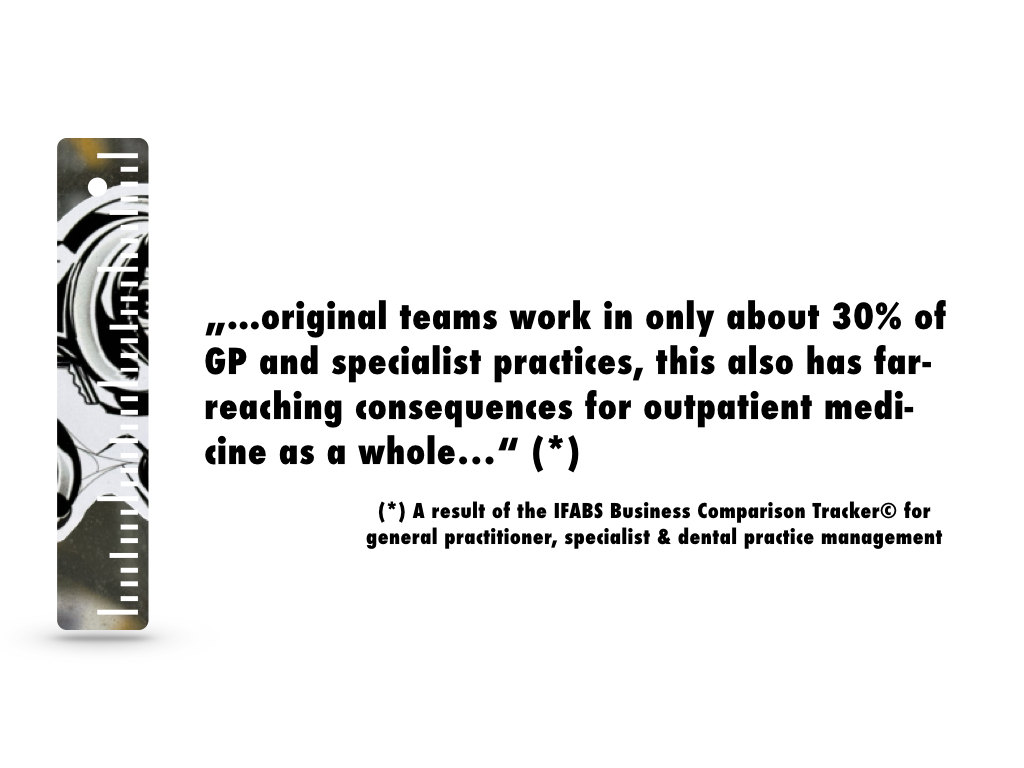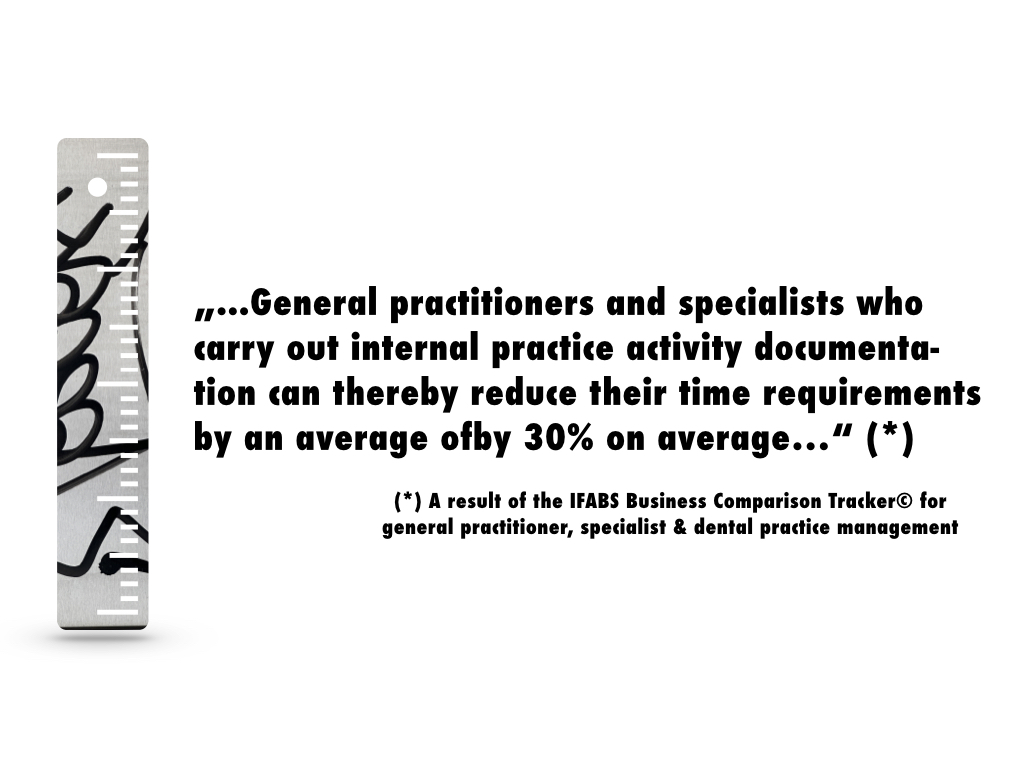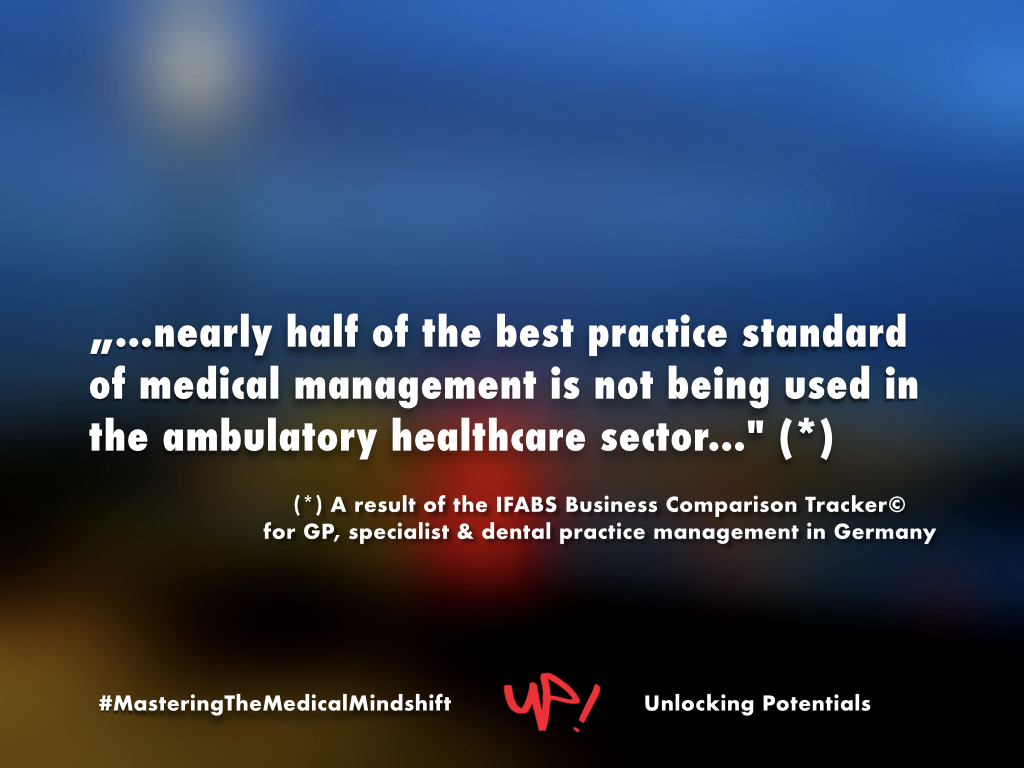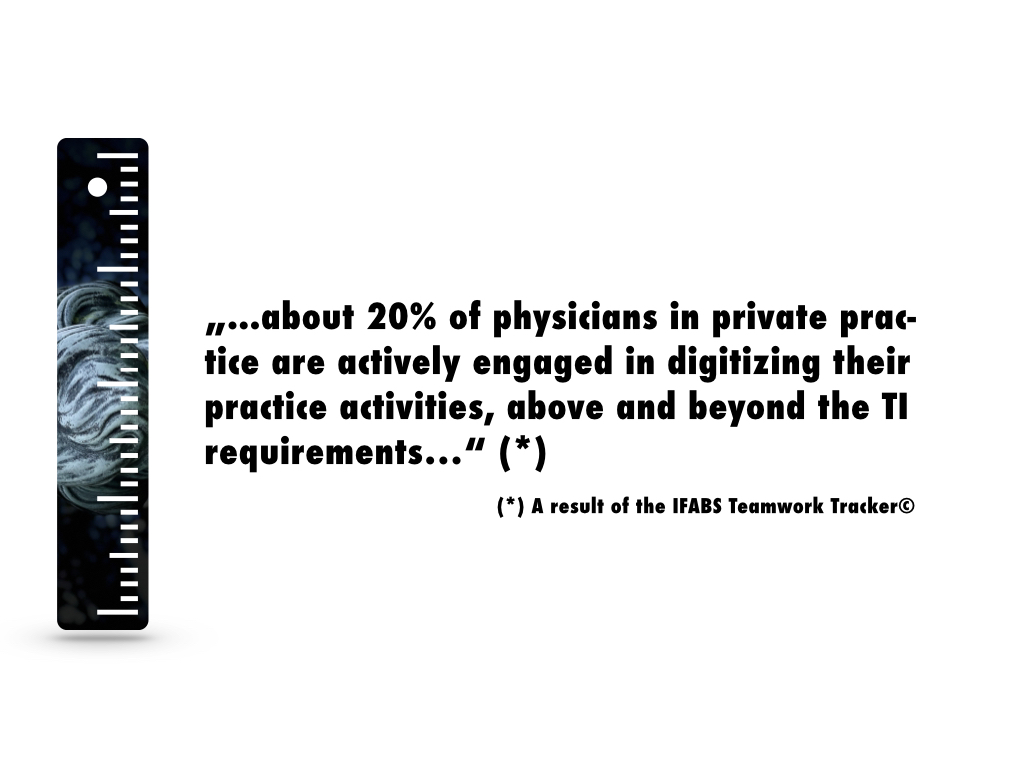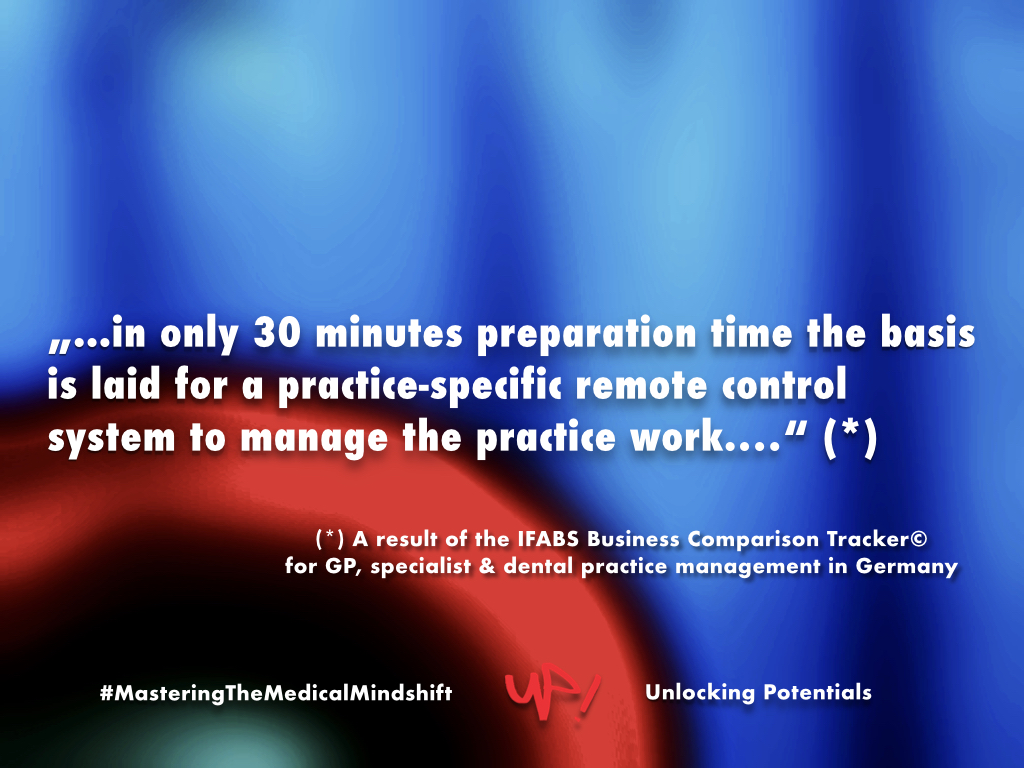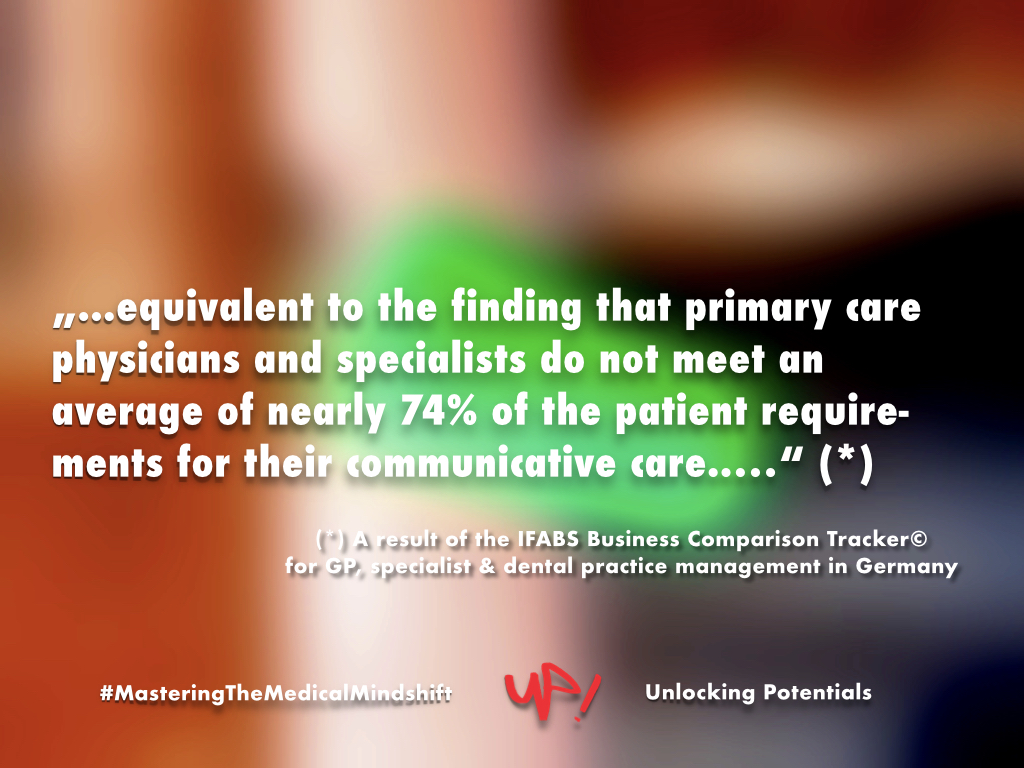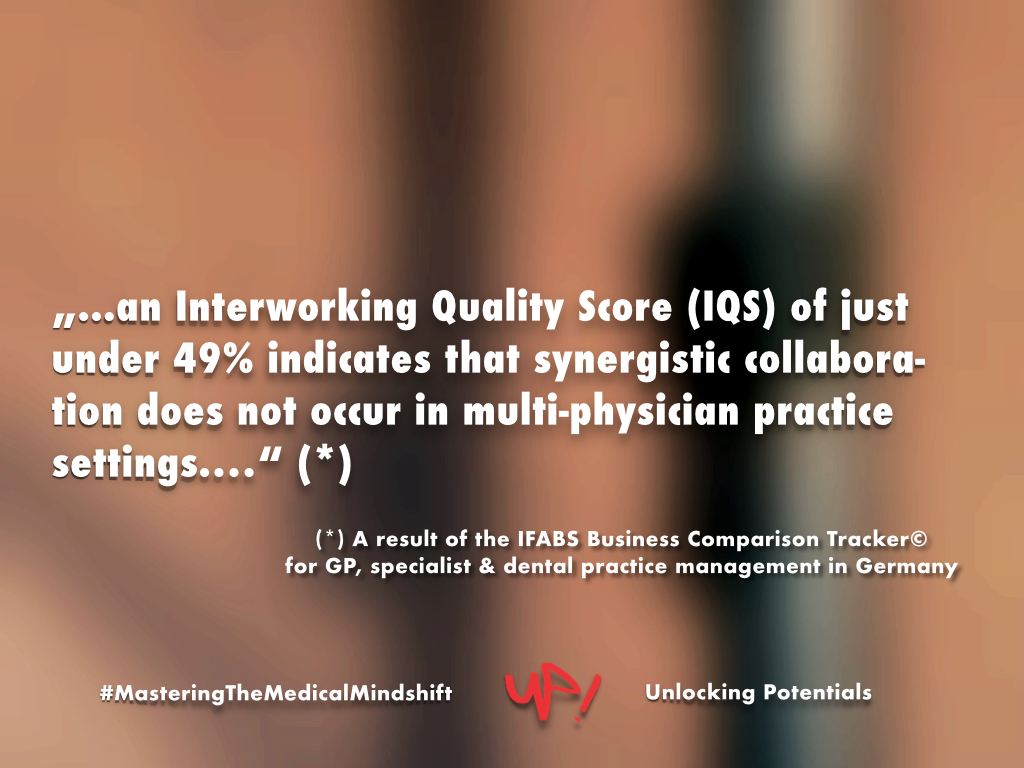Data, facts and instruments on the German health system
What it’s about
They are widespread, catchy, readily accepted without scrutiny because they spare them action and self-reflection, but are false and influence physician action: toxic mindsets in ambulatory medicine. Example.
„Every physician has the staff he deserves.“
In the evaluations of the IFABS Betriebsvergleich-Tracker© for GP, specialist and dental practice management, complaints by practice owners about poor staff, who work more incorrectly and are not committed or are not committed enough, frequently stand out in the free text information provided by participants.
However, the detailed analysis of work routines, management behavior and team structures show that, regardless of what the individual practice manager understands by the attribute „good“, a large number of management errors impair the quality of work, for example
- Lack of work objectives
- Hardly any definition and delimitation of areas of responsibility
- Too little freedom for independent action
- Unclear rules of cooperation
- Lack of support for necessary conflict resolution
- Unequal treatment
- Lack of unambiguous decisions
- Too little internal communication
- No promotion and development of skills
- Lack of feedback on performance
- Too little appreciation and recognition
- Suggestions are not listened to / accepted
- Lack of solidarity towards patients
- Reprimands in the presence of patients
- Moody doctors
- Unhealthy workplaces
The remarks make it clear: doctors are responsible for the quality of their staff, apart from individual cases of actual lack of skills. Or formulated in another way:
Every doctor has the employees he deserves through his behavior and the set work framework.
Do not work in real teams in medical practices
In addition: the average Teamwork Quality Score (TQS), i.e. the satisfaction of medical assistants regarding the degree of realization of the best practice team standard in their practices, is – viewed across all specialist groups – currently only 43.7% (optimum: 100%),
i.e., groups in primary care and specialty practices generally work together, a fact that surprises many practice owners after determining the indicator for their practice.
In this form of collaboration
- the synergy of individual activities is only slightly pronounced: people work with each other, but always only within the framework that is given; own initiative or helping out with problems are rather rare,
- there are often unresolved and unproductive conflicts,
- Every medical assistant strives to do her job well, but there is no sustained commitment to continuous improvement.
At the same time, however, the status is a starting point for reorganizing the work in the practice by examining the reasons more closely and adapting the conditions for cooperation accordingly.
